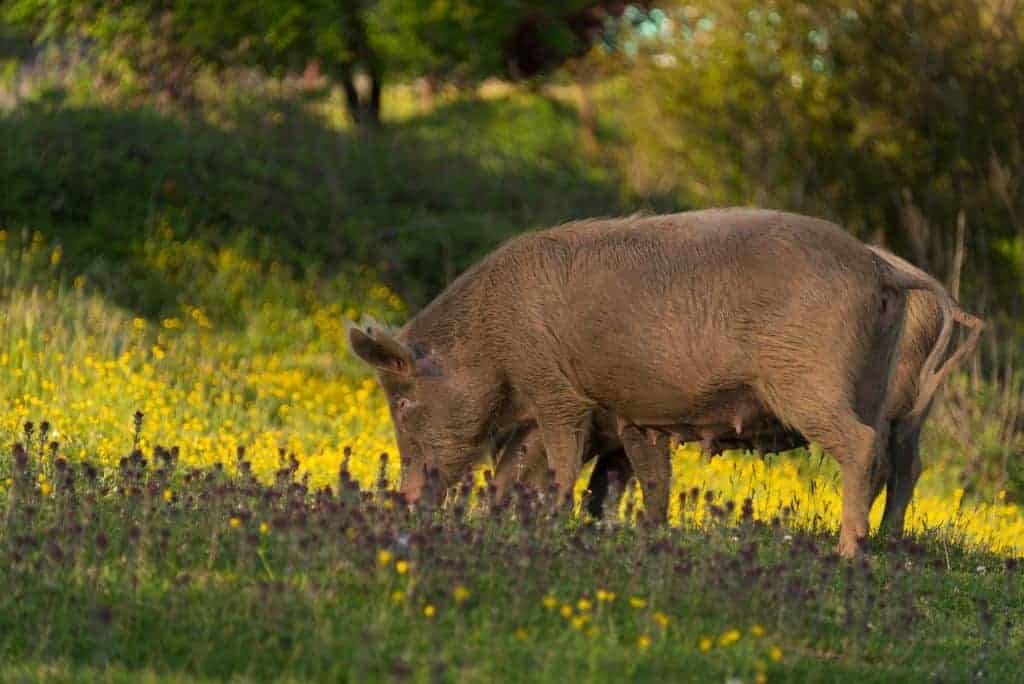
Feeding pigs is a critical aspect of their health and growth, but it’s equally important to be aware of the harmful substances that can be toxic to them.
While pigs are omnivores and can consume a wide variety of foods, some feeds and ingredients can pose serious health risks.
Certain poisonous feeds can lead to illnesses, impaired growth, or even death if consumed in large quantities.
Understanding which substances are toxic to pigs is essential for ensuring their well-being and optimizing their production in a safe and sustainable manner. This article will highlight the most common poisonous feeds that should be avoided in pig diets.
1. Moldy Or Contaminated Feed
Moldy feed is one of the most common types of harmful feed for pigs. When feed is improperly stored or exposed to moisture, it can develop molds that produce mycotoxins, which are highly toxic substances.
Mycotoxins, such as aflatoxin and ochratoxin, can cause a range of health problems for pigs, including liver damage, poor growth, reproductive issues, and immune suppression.
To prevent mold contamination, it is essential to store feed in a dry, cool, and well-ventilated area, keeping it away from moisture and humidity. Regularly inspecting feed for signs of mold and discarding any contaminated feed is crucial to maintaining pig health.
2. Green Potatoes And Potato Peels
Green potatoes and their peels contain solanine, a naturally occurring toxin that is harmful to pigs. Solanine is produced in potatoes as a defense mechanism against insects and fungi.
When pigs consume green potatoes or large amounts of potato peels, they can experience symptoms such as vomiting, diarrhea, and, in severe cases, neurological damage or death.
It is important to avoid feeding pigs potatoes that are green or have begun to sprout. If feeding potatoes to pigs, they should be properly cooked and peeled to eliminate any potential toxins.
3. Raw Soybeans
Soybeans are a common ingredient in pig feed, but raw soybeans can be harmful to pigs due to the presence of certain anti-nutritional factors, including trypsin inhibitors and lectins.
These compounds interfere with protein digestion and can cause gastrointestinal distress, malnutrition, and growth retardation.
Cooking or processing soybeans before feeding them to pigs can neutralize these harmful compounds and make the beans safe for consumption.
Pigs should only be fed properly processed soybeans, such as those that are roasted or steamed, to avoid the harmful effects of raw soybeans.
4. Rhubarb Leaves
Rhubarb is a popular vegetable, but its leaves are highly toxic to pigs. The leaves contain oxalic acid and anthraquinone glycosides, which can cause severe poisoning in pigs if ingested. Symptoms of rhubarb poisoning in pigs include drooling, diarrhea, weakness, and in some cases, kidney failure.
While the stalks of the rhubarb plant are edible and can be used in cooking, the leaves should never be fed to pigs. It’s important to ensure that pigs do not have access to rhubarb plants, especially the leaves, to prevent accidental ingestion.
5. Kitchen Scraps And Food Waste
Feeding pigs kitchen scraps and food waste can be dangerous, especially if these scraps contain toxic foods such as onions, garlic, chocolate, or certain fruit pits.
Onions and garlic, for example, contain compounds that can cause hemolytic anemia in pigs, leading to weakness and lethargy. Chocolate contains theobromine, a substance that is toxic to pigs and can cause heart problems, seizures, and death.
Additionally, fruit pits from cherries, peaches, and apples can be toxic, as they contain cyanogenic compounds that release cyanide when consumed. It is essential to avoid feeding pigs any kitchen scraps that contain these harmful ingredients to prevent toxicity.
In conclusion, understanding the types of poisonous feed that are harmful to pigs is essential for maintaining their health and ensuring their well-being.
Moldy feed, green potatoes, raw soybeans, rhubarb leaves, and harmful kitchen scraps are just a few examples of substances that should be avoided in pig diets.
By carefully monitoring what pigs consume and providing them with a balanced, safe diet, farmers can prevent poisoning and promote healthy growth.
Ensuring that pigs are fed appropriate, non-toxic foods is key to optimizing their production and protecting them from serious health issues caused by harmful feed.
Read Also:Pig fattener feed: optimizing growth and weight gain in pigs





